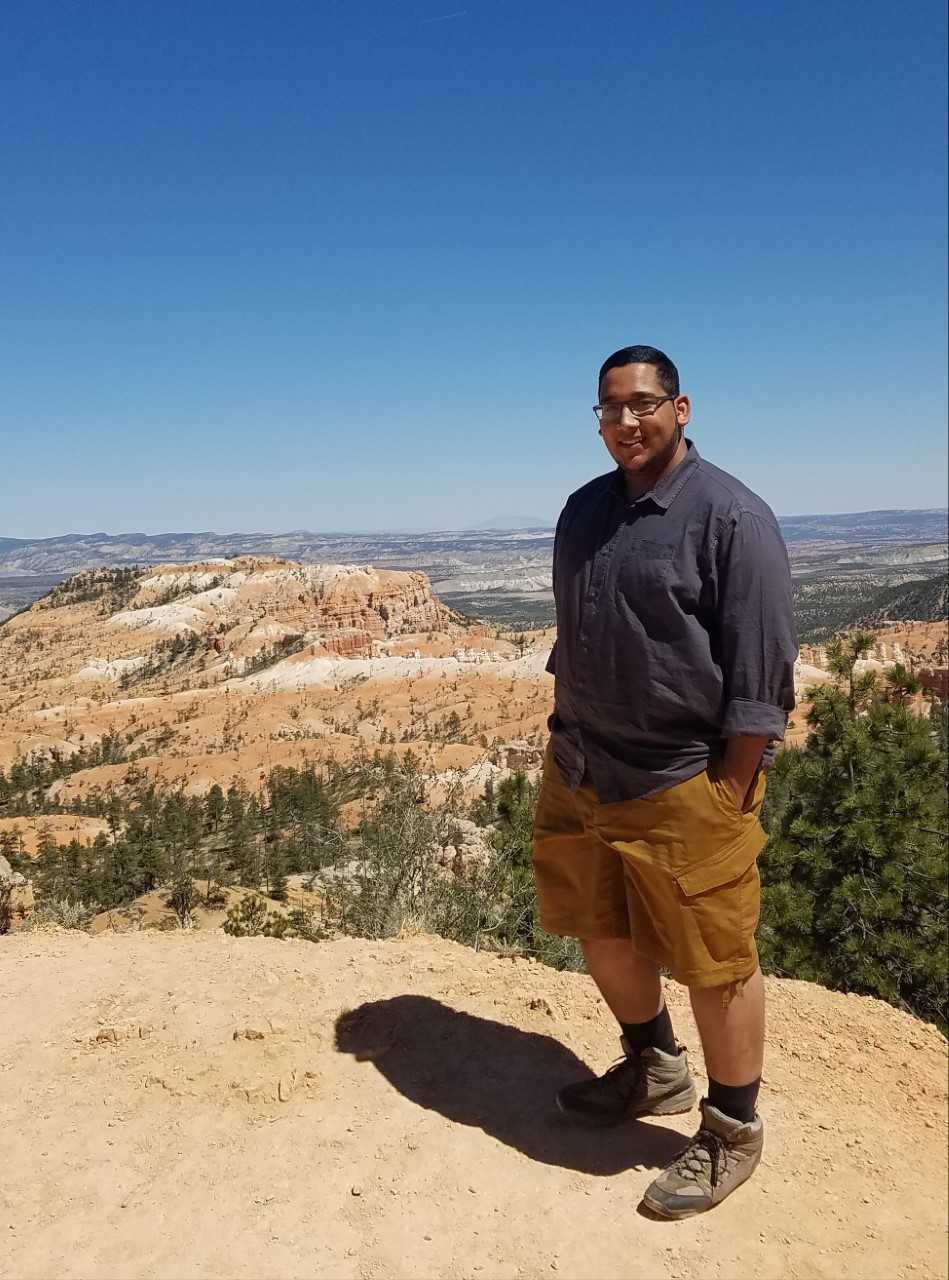A passion for research leads to UReCA student editor position for Honors student

"'"'"'during his UReCA training this past June.
A passion for research has lead sophomore public health student Mujtaba Hameed into a student editor position for a national undergraduate research journal.
Hameed was selected to be a student editor for the UReCA, National Collegiate Honors Council's journal of Undergraduate Research and Creative Activity. According to nchchonors.org, the UReCA "fosters the exchange of intellectual and creative work between undergraduate students, providing a platform where students can engage with and contribute to the advancement of their individual fields. Our vision is an academic community without borders, a connected network of aspirational students committed to the advancement of knowledge and appreciation of the arts."
He said that he was looking for more ways to get involved as an Honors student, but he couldn't decide if he wanted to join The South End or try his hand at writing an online blog or journal.
It all feel into place for him after reading an email about the need for UReCA student editors.
"With research becoming much more a passion of mine, I realized this could be a really good fit," he said. "I love to proofread and stuff like that and it is something I thought I would really enjoy."
The focus of his editing would be more than just proofreading for grammatical errors - he would also focus on content and making sure submissions meet the UReCA's minimum requirements. In order to learn the selection standards and set up the next issue, Hameed attended a three-day boot camp in Bryce Canyon, Utah this past June.
Hameed will gather again with his current UReCA editors during the NCHC national conference in Boston (November 7-11) to celebrate the new issue of UReCA, which goes live November 1, and spread the word about submissions and recruitment of next year's group.
"I am evaluating the best undergraduate research that is going on in the country. Honors students are doing quite a bit…there (are) theses from everything like history to chemistry to anything in between," he added. "I think that this will make me a lot more open-minded and broaden my view on how much research has to offer and being more scrutinizing will make me a better researcher as well."
To view the journal, visit www.nchc-ureca.com. Submissions are welcomed from all currently enrolled undergraduate Honors students. To submit work to the jounral, follow the submission link on the website.
Research has been a passion of Hameed's ever since his first year on campus. He has been doing clinical research in emergency medicine at Wayne State's School of Medicine for over a year and has also had the opportunity to work with the school's physicians on projects.
"So a lot of what my path has been, up until now, has been shaped by that (research). Especially because there is a lot of patient interaction," he said. "I found that I really loved the clinical research because it allowed me the opportunity to talk to people, understand better what their situations are and see what the impact can be beyond just changing this drug and (seeing if) this person's health improved."
He has been doing all of this research while being a pre-medical student and pursing a Bachelors in Public Health with University Honors.
"Public Health is really great because it puts you in the mindset of this is what we are starting out with; these are the problems. Let's come up with a plan and let's see what happens," he continued. "Does it help? Does it not help? Does it only impact it part way? What can we do to improve from thereon? And it's directly touching peoples' lives and that is really important to me."
Hameed sees himself working towards becoming a clinical physician with a Master's in Public Health so he can continue his passion for research and working in the community.
He added that the Honors College has played a "significate part" in his decision making at Wayne State.
"Honors students from the get-go are encouraged to get involved into research, to seek out faculty mentors, and all of the faculty that I have met up until now are really encouraging and good about that. They want undergraduate students to be involved, to develop that passion, and that is something that I found to be really amazing here," he said. "That sort of comradery, at whatever level people are at - whether its undergrad, masters, Ph.D. students, doctors, or pis who are working at their own research labs, that idea of taking a chance on you and helping you get to that point and really encouraging you to get to that point. That growth is really fostered by the type of environment that Honors creates here.
"Research is something that can really help people explore their passions. And especially as Honors students, I think that, regardless of what you are interested in, there is some sort of research available for you that you can really explore." - Mujtaba Hameed